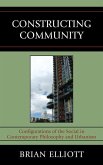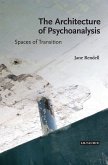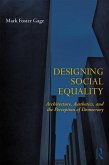Walter Benjamin is universally recognised as one of the key thinkers of modernity: his writings on politics, language, literature, media, theology and law have had an incalculable influence on contemporary thought. Yet the problem of architecture in and for Benjamin's work remains relatively underexamined. Does Benjamin's project have an architecture and, if so, how does this architecture affect the explicit propositions that he offers us? In what ways are Benjamin's writings centrally caught up with architectural concerns, from the redevelopment of major urban centres to the movements that individuals can make within the new spaces of modern cities? How can Benjamin's theses help us to understand the secret architectures of the present? This volume takes up the architectural challenge in a number of innovative ways, collecting essays by both well-known and emerging scholars on time in cinema, the problem of kitsch, the design of graves and tombs, the orders of road-signs, childhood experience in modern cities, and much more. Engaged, interdisciplinary, bristling with insights, the essays in this collection will constitute an indispensable supplement to the work of Walter Benjamin, as well as providing a guide to some of the obscurities of our own present.
Bitte wählen Sie Ihr Anliegen aus.
Rechnungen
Retourenschein anfordern
Bestellstatus
Storno








